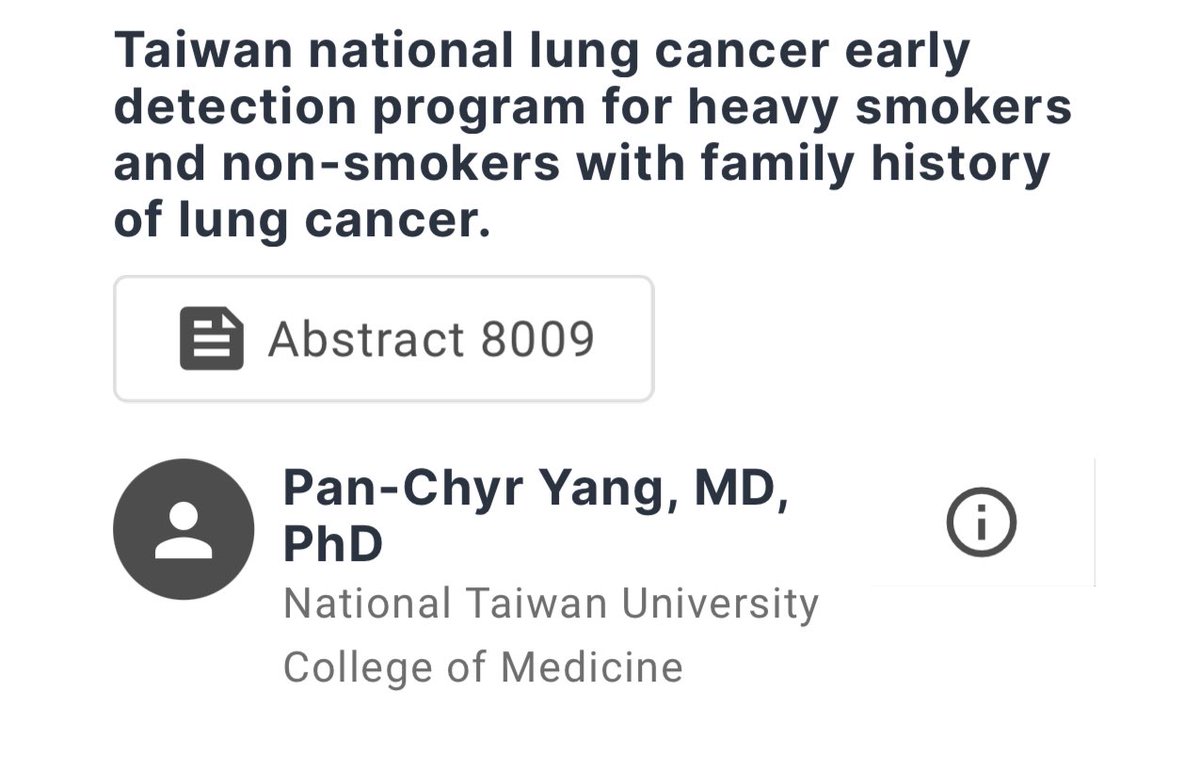Drew Moghanaki shared a post on X:
“Here is the abstract for a 78,000 patient lung screening study ongoing in Taiwan demonstrating how family history may be more important than smoking history.
Background: Lung cancer incidence in Taiwan has been rising with the epidemiological profiles distinct from Western country.
Notably, nonsmoking lung cancers accounts for more than 60% and half of lung cancers were diagnosed in advanced stages. For early detection, a national program is therefore initiated to offer biennial low-dose computed tomography (LDCT) screening for heavy smokers and subjects with lung cancer family history (LCFH).
Here, we report basic screening findings, analyze relevant effectiveness in reducing advanced lung cancer, and project the potential benefit of mortality reduction.
Methods: Taiwan National Lung Cancer Early Detection Program was launched on July 1, 2022 to offer heavy smokers (30 pack-years) and nonsmokers (including light smokers) with a LCFH aged 45-74 years for female and aged 50-74 years for male. This is a continuous screening program using before and after study design for evaluation.
We provided the overall first-year basic screening findings until Dec 31, 2023 and did per protocol analysis of stage II+ cancer reduction in comparison with tumor stage distribution in the year preceding the introduction of the national program.
The corresponding findings were presented for subjects with LCFH and heavy smokers. The result for heavy smoker was compared with those per-protocol findings from previous randomized controlled trials. The potential mortality reduction was further projected.
Results: A total of 78,000 individuals participated in this program, male 44,381 (56.9%) female 33,619 (43.1%); 31,111 participants (39.9%) were heavy smokers, 43,853 (56.2%) nonsmokers but with a LCFH, and 3,036 (3.9%) had both risk factors. Lung cancer confirmed in 956 subjects by surgery or biopsy, 85.0% were stage 0-1.
The lung cancer detection rate was 1.2%. Subjects with a LCFH exhibited a higher detection rate (overall: 1.6%, nonsmokers: 1.7% and light smokers 0.9%) compared to heavy smokers (0.7%) and both (1.1%).
Early detection of LDCT led to a statistically significant 77% (51%-89%) of reducing advanced stage of lung cancer, 53% (-3%-78%) reduction for heavy smokers, consistent with the corresponding 36%-64% reduction derived from the NLST trial and the Nelson trial, and 85% (67%-93%) reduction for nonsmokers with a LCFH.
The benefit of reducing stage II or severe in conjunction with five-year stage-specific survival rate further projected 55% (10%-78%) of mortality reduction from lung cancer. Conclusions: This is the first large-scale LC screening service enrolling 40% heavy smokers and 60% non-smoker with a LCFH.
The potential effectiveness of early detection was demonstrated for both targets. As the results based on per-protocol analysis for heavy smoker were consistent with those of previous evidence-based studies the similar and significant intention-to-treat results as before while waiting for the subsequent follow-up would be expected.”
Additional information.
Source: Drew Moghanaki/X
Drew Moghanaki, a Professor and Chief of Thoracic Oncology at the Department of Radiation Oncology, UCLA. He holds the Stanley Iezman and Nancy Stark Endowed Chair in Thoracic Radiation Oncology Research at the same university. He specializes in treating lung cancer and other thoracic malignancies, focusing on advanced radiation therapy techniques like stereotactic body radiation therapy (SBRT), magnetic resonance-guided radiation therapy (MRgRT), and intensity-modulated radiation therapy (IMRT)..
